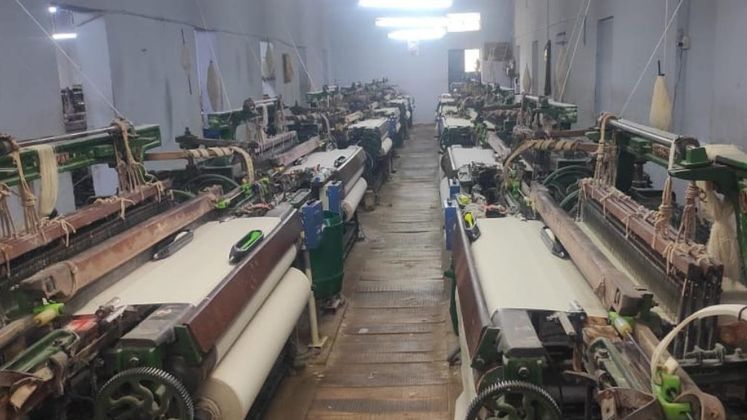
Tirupur and Coimbatore districts witnessed an unexpected boom in the powerloom sector this festival season, bringing renewed demand and higher wages for weavers in Somanur, Thekkalur, Avinashi, and parts of Palladam. The industry, which had been facing a prolonged slowdown for over six years, is now seeing a revival driven by export orders from African markets.
According to E. Bhoopathi, president of the Coimbatore District Jobworking Powerloom Weavers’ Association, demand for fabrics woven on conventional powerlooms had been strong before 2014, supported by government export incentives to African countries. However, this demand had waned in the following years. Bhoopathi noted that the situation has now reversed, with African orders picking up once again. Master weavers are reportedly paying 20 to 25 paise more per metre to job workers, and powerlooms are running at full capacity. The demand, he said, is primarily for 50-inch-wide fabrics woven from 20s count cotton yarn.
K. Sakthivel, president of the Powerloom Development and Export Promotion Council, explained that demand from Africa had declined due to currency fluctuations in certain nations. He observed that the African market alternates between Chinese and Indian suppliers, typically causing a 20 per cent rise or fall in India’s exports depending on sourcing trends. Currently, he added, Indian exporters are benefiting as China’s focus has shifted away from textiles, creating opportunities for Indian suppliers.
The current demand is concentrated on fabrics woven using regular powerlooms rather than automatic ones. Sakthivel highlighted that the African market has evolved, with over 50 multi-colour printed designs now popular, compared to only a handful of simpler patterns in the past.
However, he urged caution among Tamil Nadu’s weavers, noting that the number of powerlooms serving the African market has fallen from around 35,000 earlier to about 25,000 now. While wages have improved, he advised weavers not to rely solely on African demand but to expand capacity gradually and maintain a balanced market mix.
G. Arulmozhi, president of the Openend Spinning Mills’ Association, stated that there has been strong demand for 20, 25, and 30 count yarns, which are being supplied to meet the surge in fabric production. Although yarn prices remain modest, most opened mills are now operating at full capacity due to the export revival.
Sakthivel further urged the Tamil Nadu Government to assist weavers in establishing a fabric finishing unit within the State. He noted that, with such a facility, exports worth ₹1,500 crore could shift from western States like Maharashtra and Gujarat to Tamil Nadu, enhancing the State’s textile export potential.






